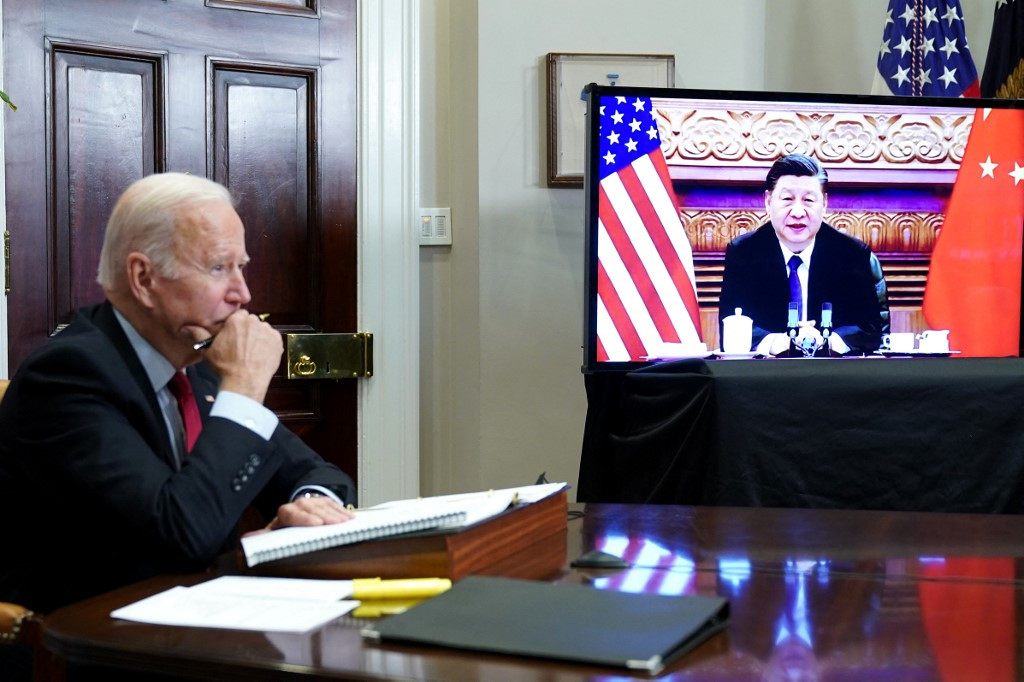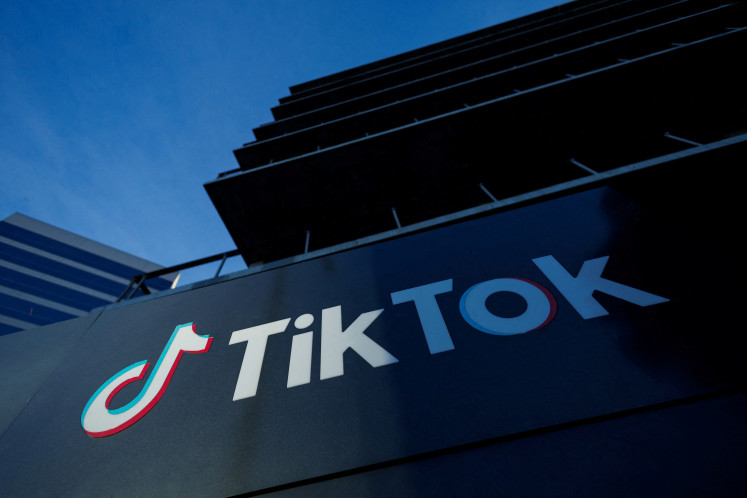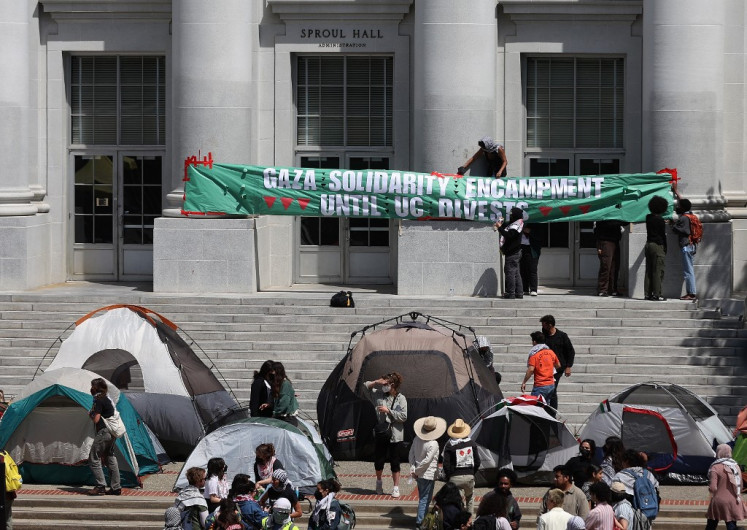Biden, Xi begin phone talks, with Taiwan tension likely on agenda
The call is the fifth between Biden and Xi. They last held talks in a video call in March, just weeks after Russia's invasion of its neighbor started.
Change Size
 US President Joe Biden meets with China's President Xi Jinping during a virtual summit from the Roosevelt Room of the White House in Washington, DC, November 15, 2021. (AFP/Mandel Ngan)
US President Joe Biden meets with China's President Xi Jinping during a virtual summit from the Roosevelt Room of the White House in Washington, DC, November 15, 2021. (AFP/Mandel Ngan)
U
S President Joe Biden began phone talks with Chinese President Xi Jinping on Thursday morning, the White House said, with tensions over Taiwan, Beijing's assertive behavior in the Indo-Pacific region and Russia's war against Ukraine likely to be among the issues discussed.
The call is the fifth between Biden and Xi. They last held talks in a video call in March, just weeks after Russia's invasion of its neighbor started.
The talks come as China has been delivering strong warnings against a possible visit to Taiwan by U.S. House of Representatives Speaker Nancy Pelosi. It would be the first trip to the self-ruled island by a holder of the powerful congressional post in 25 years.
Taiwan, which Beijing views as a renegade province awaiting reunification with the mainland, by force if necessary, is seen as a potential military flashpoint that could draw the United States into conflict with China.
On Thursday, Chinese Foreign Ministry spokesman Zhao Lijian reiterated Beijing's "firm opposition" to a visit by Pelosi to Taiwan, saying the country's National Defense Ministry has warned the Chinese military "will not sit idly by" if she goes ahead with the trip.
"We'll take strong measures to disrupt any foreign interference and any attempt at Taiwan independence. And we mean what we say," he said at a press conference.
Amid increasing rivalry between the two countries in the military, economic and technological spheres, Biden wants to ensure that lines of communication with Xi remain open, White House National Security Council spokesman John Kirby told a press conference on Wednesday.
On Taiwan, Biden is expected to reaffirm that Washington remains committed to its one-China policy, under which it recognizes Beijing as the "sole legal government of China," Kirby said.
The US president is also likely to reiterate Washington's position of not wanting to see tensions around the Taiwan Strait resolved unilaterally or by force.
Taiwan and mainland China have been separately governed since they split due to a civil war in 1949. Beijing has since endeavored to bring the island back into its fold.
The United States changed its diplomatic recognition from Taipei to Beijing in 1979 but has maintained unofficial relations with Taiwan and supplies the island with arms and spare parts to maintain sufficient self-defense capabilities.
On the economic front, the Biden administration has been considering whether to lift tariffs on some Chinese imports in a bid to ease high inflation that has been weighing on the world's largest economy.
The tariffs, imposed by Biden's predecessor Donald Trump amid a tit-for-tat trade war with China, have so far covered around $370 billion worth of Chinese goods.
But Kirby told reporters Tuesday that he does not expect the issue to be a major topic of discussion between Biden and Xi because the US president has not made a decision yet.
The Biden administration has been desperate to tackle inflation, exacerbated by higher energy prices on the back of Russia's war, ahead of the November midterm elections as the Democratic president's popularity has declined.
But the decision-making has apparently been complicated by divisions inside the U.S. government as well as opposition from labor unions -- key supporters for Biden -- that believe the tariffs are worth keeping in order to pressure Beijing to change what they view as its abusive business practices.
During the call in March, Biden warned Xi of the "consequences" Beijing would face if it moves to actively support Russia's invasion of Ukraine.
The US State Department said earlier this month that Washington has not seen China help Russia systemically evade sanctions imposed by the West, or provide military equipment to Moscow so far, while warning that such actions would be met with a "very steep cost."









